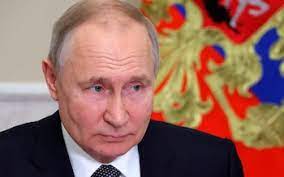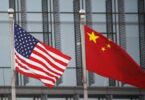Peter Pomerantsev
The powerful were meant to be afraid of the truth. Journalists were meant to “hold truth to power”. Evidence was meant to destroy wrongdoers as sunlight does a vampire. Find the evidence, the logic went, and the powerful could be shamed and brought to justice.
Historically, the powerful would try to censor and suppress the facts. The Nazis tried to keep the truth about their atrocities hidden. The Soviet leadership would howl with embarrassment when dissidents passed information about conditions in the gulag to the outside world. Richard Nixon was brought down after the facts of his bugging his political opponents, and his ensuing cover-up, were brought to light. But what happens when the powerful stop being scared of the truth, indeed flaunt their disregard for it – as we see in the behaviour of Russia’s Vladimir Putin and America’s Donald Trump? Why has shame disappeared and why does impunity reign? Are we now helpless to hold the powerful to account?
In the US last week, Trump was again lying “bigly” and brazenly. At a televised CNN town hall event, the journalist Katie Collins tried to rein him in with ropes of evidence and rational argument but he just revelled in rejecting any truth or logic. According to Trump, the presidential election that he lost in 2020 was “rigged”, despite there being no proof for any such claims; the reporter E Jean Carroll, whom a civil jury found Trump guilty of defaming and sexually abusing, was just a “whack job”; when Collins pulled him up over the classified documents that Trump had removed from the White House, he dismissed her as a “nasty person”. The audience in New Hampshire, full of Trump fans, whooped and cheered. Instead of being “held to account” with the truth, Trump had a field day showing how he didn’t give a hoot about it. Why do his supporters enjoy this so much? There is, first of all, a powerful relief that comes from throwing off the weight of facts, the constraints of glum reality.
Facts are generally unpleasant things, but they are useful for politicians who are trying to establish some sort of proof that their big policy is working. But Trump had no stable policies: he can be righter than right, and then pivot left when it suits him. Ever since Florida governor Ron DeSantis, his rival to head the Republican party, has tried to show he is more conservative than Trump – and most Americans – on issues such as abortion, Trump has made himself look more liberal. Nor has Trump any ideals that you could shame him into having betrayed. Instead, he appeals to a sense of pure resentment, where throwing off all forms of authority and responsibility – the authority of logic, ideals, rational policies, the “elites” – is what makes him attractive to people. In a democracy such as the US, however, reality can take revenge. Trump’s rejection of the facts about Covid cost him the 2020 election. Every month, more court cases pile up against him: most seriously, for (allegedly) trying to force officials in Georgia to count more votes in his favour in 2020. Fox News, the Trump-supporting television network that has knowingly peddled conspiracy theories supporting his claims of a “rigged” election, has just paid out $787m (£633m) to the company it accused of falsifying votes.
Putin has fewer restraints. Unlike previous warmongering dictators, he doesn’t even try to hide his atrocities and intent to commit genocide in Ukraine. Putin and his propagandists speak openly about their desire to destroy Ukrainian identity and sovereignty, of abducting Ukrainian children and forcibly re-educating them. The Russian army shells maternity hospitals, obliterates civilian infrastructure and entire cities. Putin wants to show he can mass murder openly, and there is nothing anyone can do about it. He wants to open a chasm between truth and justice so the connection between the two is utterly ruptured. But the Russian invasion of Ukraine could also be a turning point: Putin’s plague of impunity is starting to be confronted by innovative initiatives great and small.
Since the war started, I’ve been working with journalists and lawyers at the Reckoning Project to help “quicken” justice around atrocities. Lawyers and journalists don’t often work together – but in this case we are both on the same side. Teams of Ukrainian reporters trained in international human rights law are gathering evidence of atrocities on the ground through testimonies from victims. We then create media content based on this evidence for “the court of public opinion”, while our legal team develops cases. Usually, war crimes cases come long after a conflict ends; in this war, however, we need to construct them as it rages.
But when we think about justice we need to go beyond old-fashioned cases of war crimes, where a general or politician is brought to trial. While that is obviously important, waiting for it can take a long time. Moreover, some of the Putin elite are only too proud to be accused of atrocities: it shows their loyalty to the leader. We need to broaden our concept of how justice can be achieved. One of the more innovative ideas floated recently comes from Ilona Khmeleva, of the Economic Security Council of Ukraine, and the British law firm McCue Jury. They propose an economic justice tribunal. This will adjudicate on how to seize the international assets of the Russian state and its oligarchs, and distribute them to specific victims of Russian aggression. I would add (billion-dollar) fines against western companies and enablers that continue to support Putin’s war machine despite sanctions. Such a tribunal would both give tangible compensation to victims and undermine the corrupt, global system that Putin has created and whose existence he uses to prove how entrenched his power is. Putin’s domestic propaganda is always trumpeting how many supporters it has across the world: from Viktor Orbán in Hungary to Trump in the US. President Joe Biden had tried to isolate us, the argument goes, but he’s too weak and everyone needs our oil, gas and metals.
Polls in Russia show that Russians tend to believe anyone who is in authority: truth is not a value in itself, but a subset of power. As one recent poll by the Open Minds Institute concludes, Russians tend towards “belief that the government is right, solely because it is the government and it has power”. If Putin can show he is powerful, through impunity globally and victory on the battlefield, then he is “believed”. Defeat him on the battlefield, undermine his system in the courts, and his power to define reality will slip. It’s not just truth that leads to justice, it’s justice that leads to truth.
The Guardian







